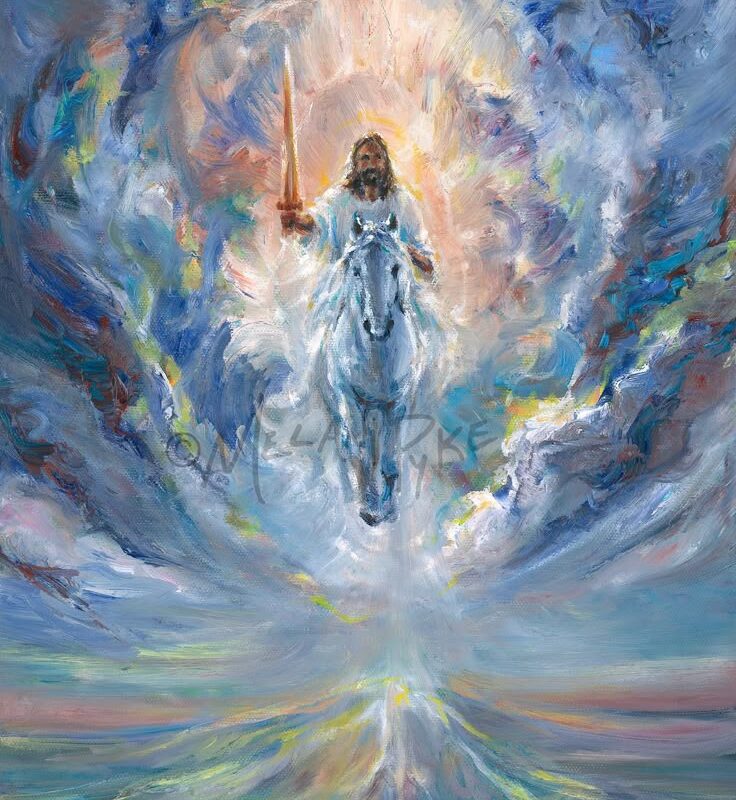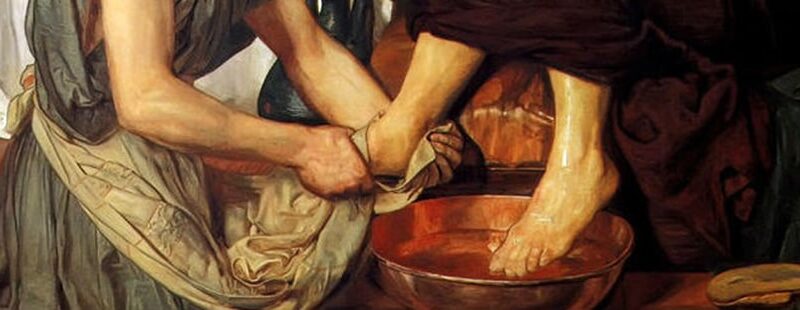Romans 5:6–21
When God made His covenant with Abram in Genesis 15, He made a striking promise: “I will bless you… and in you all the families of the earth shall be blessed.” But this covenant wasn’t a contract between equals. The lesser, which was Abram, should have been the one making an oath and promising to bless the one who is greater – God. But, when the animals were cut in two, and the smoking firepot passed between them, God alone walked through the pieces, signifying he was going under the oath. It was His way of saying, “If this covenant is ever broken, may I bear the curse.”
He knew His people would fail. He knew sin would still corrupt hearts. Yet He vowed to take the cost of their failure upon Himself. That promise finds its fulfillment in Jesus Christ, who took on the curse of sin and death to bring us the blessing of reconciliation with God. Paul unfolds this truth in Romans 5:6–21, showing us that our salvation is entirely the work of God’s love and grace.
Christ Died for the Ungodly (Romans 5:6–8)
Paul begins by reminding us of the condition we were in when Christ came for us: “While we were still weak, at the right time Christ died for the ungodly… God shows His love for us in that while we were still sinners, Christ died for us.”
Weak. Ungodly. Sinners. Enemies.
That’s not flattering language, but it’s honest. We were spiritually helpless, morally bankrupt, and unwilling to change. There was nothing in us that made God love us.
And yet, He did.
Christ’s death wasn’t a response to our goodness—it was the proof of God’s love in spite of our sin. Love in this passage isn’t sentimental; it’s sacrificial. It’s the deliberate choice of a holy God to bear the burden of our rebellion.
At the cross, God doesn’t love us because we are lovely—we become lovely because He loves us.
So if you ever question whether God loves you, look again at the cross. It stands forever as the testimony that He does.
Reconciliation Through Christ’s Blood (Romans 5:9–11)
Paul then moves from the proof of love to the results of it: “Since, therefore, we have now been justified by His blood, much more shall we be saved by Him from the wrath of God.”
To be justified means that our standing before God has changed. The guilty verdict is gone. The debt is paid. Through Christ’s blood, we are declared righteous.
But God doesn’t stop there. Paul adds, “While we were enemies we were reconciled to God by the death of His Son.” Reconciliation means the relationship itself has been restored. The hostility between us and God is gone.
Through Jesus, both our record and our relationship are made right. We are no longer under wrath but under grace. No longer enemies but children.
And Paul gives one more reason for confidence: “If we were reconciled by His death, much more shall we be saved by His life.”
If His death has secured our peace, His risen life guarantees our hope. The cross was not the end—it was the beginning of a living relationship with a living Savior.
The Great Exchange (Romans 5:12–21)
To make sure we grasp the depth of what Christ has done, Paul compares Him with Adam.
Through Adam’s sin, death entered the world and spread to all people. One man’s disobedience brought condemnation.
Through Christ’s obedience, righteousness entered the world and brings life to all who believe.
Where Adam failed, Christ prevailed. Where sin abounded, grace overflowed.
This is the great exchange of the gospel: Adam’s failure became our inheritance, but Christ’s obedience becomes our new identity. We no longer live under the reign of death but under the reign of grace. And this grace leads to eternal life through faith in Jesus Christ our Lord.
That’s the gospel in its purest form—undeserved love transforming helpless sinners into reconciled children of God.
(If you want to know more about what it means to trust in Jesus go here)
A Love Remembered and Proclaimed
The beauty of the gospel is that God doesn’t let us forget it. In His wisdom, He gave the church a visible reminder—the Lord’s Supper.
The bread represents Christ’s body, broken for us.
The cup represents His blood, poured out for the forgiveness of sin.
Every time we eat and drink, we remember and proclaim the same truth Paul celebrates in Romans 5: that God demonstrated His love through the death of His Son.
The Table isn’t about ritual—it’s about remembrance. It anchors our faith in the historical reality of Christ’s sacrifice and renews our gratitude for the grace that sustains us still. When we hold the bread and cup, we are holding the tangible signs of the invisible grace that saved us: “While we were still sinners, Christ died for us.”
Conclusion
Romans 5:6–21 takes us from helplessness to hope, from sin to salvation, from wrath to peace. It tells us that God’s love is not earned but given, not fragile but certain, not shallow but eternal.
We were weak—but He was strong.
We were sinners—but He became our Savior.
We were enemies—but He made us His friends.
Every believer can say, “My life is living proof of His demonstrated love.”
And every time we remember His death—whether in Scripture, in prayer, or at the Lord’s Table—we are proclaiming the same truth Paul wrote two thousand years ago:
“Where sin increased, grace abounded all the more.”
Grace reigns. Love endures. And Christ lives—forever reconciling us to God.
Prayer:
Father, thank You for loving us when we were unlovable. Thank You for the cross, where Christ died for the ungodly and made peace for sinners like us. Help us live each day in the joy of reconciliation and in the power of grace. May we never forget the cost of our salvation, and may our lives reflect Your love until the day we see You face to face. In Jesus’ name, Amen. — Pastor Mark




